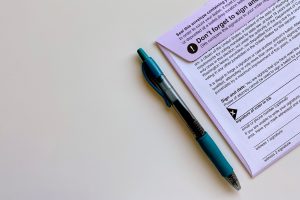
As of 2022 twenty-six (26) states have a veto referendum and/or ballot initiative process at the statewide level. In addition to these twenty-six states, Washington D.C., also has both an initiative and referendum process. The ballot initiative process allows for citizens to «step around» their state legislature, and place a proposed statute, and in some cases, a state constitutional amendment, on their state’s ballot. There are two (2) types of initiatives: direct and indirect. In a direct process, such as the one adopted by Oregon, proposals that qualify go directly on the ballot. In the indirect process, the proposal is submitted to the legislature. The state legislature can then approve the proposed measure, or something similar, which would negate the need for the ballot to go to a vote by the state’s voting public.
The Oregon government approved the legislatively referred ballot measure in 1902. This approval enabled Oregon citizens to directly initiate amendments to the Oregon state constitution, as well as enact new state statutes. Additionally, the same measure allows Oregon citizens to overturn pre-existing Oregon statutes passed by the Oregon legislature. Six years later, in 1908, the Oregon constitution was amended to include a recall of public officials as well. Between the years of 1904 and 2014, Oregon holds the record for the most statewide initiatives, with 384.
In the upcoming November 2022 election, Oregonians will have the ability to vote on four (4) statewide ballot measures. The measures address a wide ranging number of topics and issues, some long standing, and some relatively new to the state’s political landscape. The passage of Measure 111 would amend the Oregon state constitution to add that the state «ensure that every resident of Oregon has access to cost-effective, clinically appropriate and affordable health care as a fundamental right.» Arising from the Oregon legislature, the amendment would require the state to balance the obligation of ensuring a right to healthcare against funding public schools and other essential public services. If passed, this would be the first amendment adopted by any state in the U.S. to secure a right to affordable healthcare for all state residents. Measure 112, if passed, would repeal language from the state constitution that currently allows slavery or involuntary servitude as criminal punishment. It would also add language that authorizes an Oregon court or a probation or parole agency to order alternatives to incarceration for a convicted individual. In recent years, Nebraska, Utah, and Colorado all approved similar amendments to their states’ constitutions. Measure 113 seeks to exclude state legislators from re-election eligibility if they exceed a certain threshold of unexcused legislative absenteeism. If passed, the measure would amend the Oregon constitution to disqualify the state legislators from re-election following the end of their term if they are deemed absent from 10 legislative floor sessions without permission or proper excuse. Finally, Measure 114, if enacted, would outline a procedure to apply for a permit-to-purchase a firearm and prohibit certain ammunition magazines. The measure would create a state statute that i) requires permits issued by local law enforcement to buy a firearm; ii) require photo ID, fingerprints, safety training, criminal background checks, and fee payment to apply for a permit; and iii) prohibit manufacturing, importing, purchasing, selling, possessing, using, or transferring ammunition magazines capable of holding more than 10 rounds and make violations a class A misdemeanor. The permits would be issued by the Department of State Police and the DSP would be able to deny a permit if the applicant is believed to be a danger to oneself or others through a criminal background check and conclusions drawn by the permit agent in regards to the applicants mental or psychological state or history.
This week’s Current Events resources take a look at the upcoming 2022 Oregon ballot measures and the debate surrounding its measure. The resources shared provide context around ballot measures and initiatives, generally, as well as background on the specific proposals being voted on in the 2022 Oregon election.
Essential Questions, Vocabulary & Extend the Resources:
- What is a ballot measure?
- How does a measure make it to the ballot in Oregon?
- In what ways do voters have direct influence on how Oregon runs?
- What are the ballot measures in the 2022 Oregon election? How would their implementation possibly impact the state and its residents?
- How do ballot measures relate to the concept of direct democracy?
- What are the advantages and disadvantages of direct democracy compared to representative democracy? Explain.
- In your opinion, which ballot measure would be the most impactful? Explain.
Click here for a hardcopy of the Essential Questions & Election 2022: Ballot Measures Vocabulary
Click here for a hardcopy of Extension Activities CLP suggests implementing with this content
Videos:
Podcasts:
The 2022 ballot measures, OPB Politics Now, NPR, October 12, 2022
Oregon Ballot Measure 111, Setting the Record Straight with Melinda Bernert, September 9, 2022
Ballot Measures and Direct Democracy, 1A, NPR, June 29, 2022
What Happens When the People Decide?, When the People Decide, June 13, 2022
Background Resources:
- How ballot measures get to the ballot, Oregon Secretary of State
- Ballot Initiative Pathway, Civics Learning Project
- 2022 Summary of Oregon Ballot Measures, Ballotpedia
- State Initiative and Referendum Manual, Oregon Secretary of State
Recent Articles:
- Election 2022: Measure 111 asks Oregon voters to decide if health care is a human right, The Register-Guard, October 12, 2022
- Oregon voters to see 4 statewide measures, Argus Observer, October 12, 2022
- ‘Long overdue’: Oregon voters can prohibit slavery, involuntary servitude in state constitution, Statesman Journal, October 2, 2022
- Pros and cons of Measure 114 gun-safety proposal focus of debate on NewsChannel 21, KTVA, September 29, 2022
- Yes, slavery is on the ballot in Oregon and four other states, Oregon Capital Chronicle, September 1, 2022
- On the Ballot This Year: The Ballot Itself, New York Times, October 7, 2022
Recent Editorials:
- Don’t Like The Results? Change The Rules: Ballots & Boundaries, Bloomberg Government, October 12, 2022
- No to healthcare entitlement, yes to other 3 state measures, Yamhill County’s News-Register, September 23, 2022
- Editorial: Cities in Oregon don’t have much authority over guns, The Bulletin, September 5, 2022
Lesson Plans:
- Direct Democracy in Oregon, Civics Learning Project
- Election 2022: Envisioning Oregon’s Future, Civics Learning Project
- Ballot Initiatives Expand Voting Rights, Anti-Defamation League
- Down-ballot voting and the role of local elections, PBS Newshour Classroom
- Ballot Initiatives: Direct Democracy vs Representative Democracy, Citizen Advocacy Center,
Instructional Materials for Younger Students:
- Lesson: What Is A Good Rule? Creating Initiatives, Center for Civic Education
- My Vote Gives Me Power, Kids Voting USA
- Voting Matters Activity, iCivics




